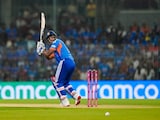- Captain Karnal Sher Khan was disowned by Pakistan during the 1999 Kargil War despite clear identity evidence
- India acknowledged Khan's role and returned his body with a citation from Brigadier MPS Bajwa
- Pakistan Army and Chief Asim Munir paid tribute to Khan on his 26th martyrdom anniversary
A Pakistani soldier, who was disowned by Islamabad during the 1999 Kargil War, is being celebrated as a national hero in the Islamic republic after 26 years, exposing Pakistan's hypocrisy. Pakistan army and its chief, Asim Munir, on Saturday paid "heartfelt tribute" to Captain Karnal Sher Khan Shaheed at his tomb in Swabi, Khyber Pakhtunkhwa, on the occasion of his 26th "martyrdom" anniversary.
Pakistan Army called Captain Khan a symbol of "unwavering courage" and "patriotism". Ironically, he was once denied a grave in his homeland after death, as Islamabad refused to claim his body found on Tiger Hill in the Dras sub-sector, despite clear evidence of his identity.
India's Role In Pakistan's Recognition Of Captain Khan
During the Kargil War, just like in 1947 and 1965, authorities in Islamabad refused to acknowledge the involvement of Pakistan army regulars in the misadventure and claimed the intruders were "mujahideen". As part of that process, Pakistan initially did not accept India's identification of Khan as an army official through correspondence found on him.
But the Indian Army acknowledged and honoured Khan. Indian Army officer, Brigadier MPS Bajwa (now retired)-- who was then commanding the 192 Mountain Brigade tasked with capturing the strategically important Tiger Hill-- was impressed by the way Khan fought and wrote a citation for him and placed it in his pocket while handing over the body, which eventually led to his recognition.
This act led to recognition of Khan's role in the war, with Pakistan honouring him with the Nishan-e-Haider, the country's highest military honour, posthumously.
Pak Army's Tribute To Captain Khan
On Saturday, the Pakistani Army marked the 26th death anniversary of Captain Khan with military honours at his tomb in Khyber Pakhtunkhwa, where Field Marshal Munir, along with other senior military officials and Khan's family, paid tribute to him.
"During the Kargil conflict in 1999, Captain Karnal Sher Khan Shaheed, a symbol of unwavering courage and patriotism, sacrificed his life while defending the motherland with unparalleled valor. He remains an eternal source of inspiration for the Armed Forces and the nation," Pakistan's DG-ISPR posted on X while informing about Munir's visit to Khan's village.
The post said that Khan's gallant actions in the face of overwhelming odds embody the finest traditions of the Pakistan Army.
"Demonstrating outstanding leadership and extraordinary bravery, Captain Karnal Sher Khan Shaheed led from the front and made the ultimate sacrifice while defending the country's sovereignty," it added.
How India Returned Khan's Body To Pakistan
Despite Pakistan's denial, India started the handover process of the dead bodies of soldiers through the International Committee of the Red Cross (ICRC) on July 12, 1999. But Islamabad requested ICRC not to name the dead soldiers, including Captain Khan, though the details were known.
According to a statement issued by the Indian Embassy in Washington on July 15, 1999, Pakistan was fully aware of the identity of Khan's bodies, but they did not acknowledge this fact as "it would immediately expose their army's involvement in Kargil."
"The Pakistani request did not specify the names and identities of the two officers, despite the information being available to them. The reason is obvious. The Pakistan authorities realised that if they conceded the identities of these two officers, it would demolish the myth that the Pakistan army was not involved in Kargil," the Embassy added.















